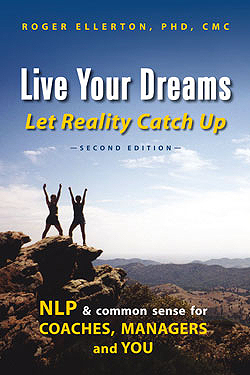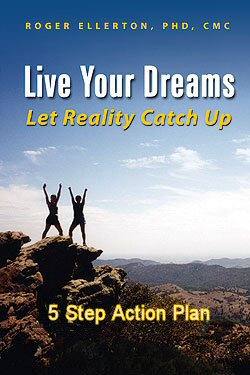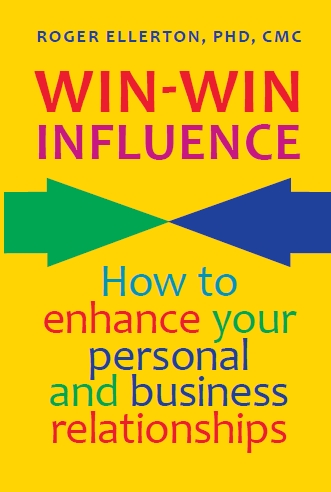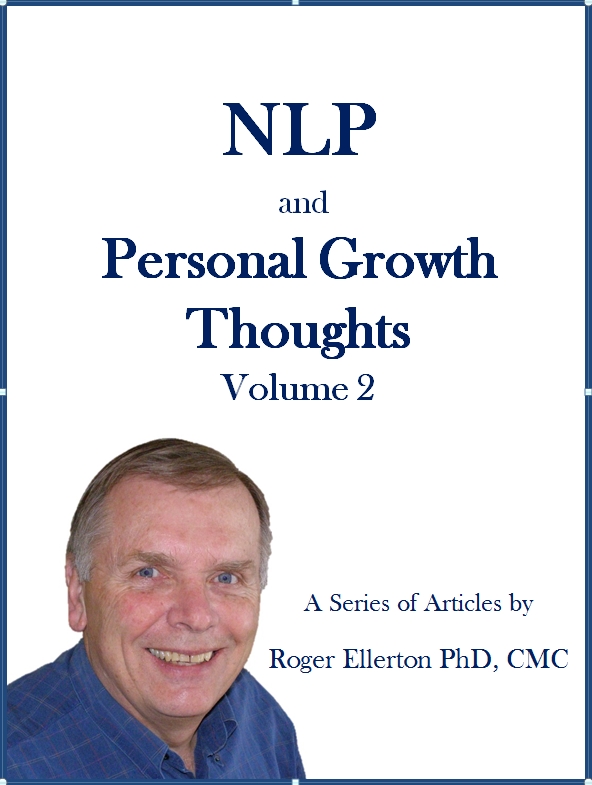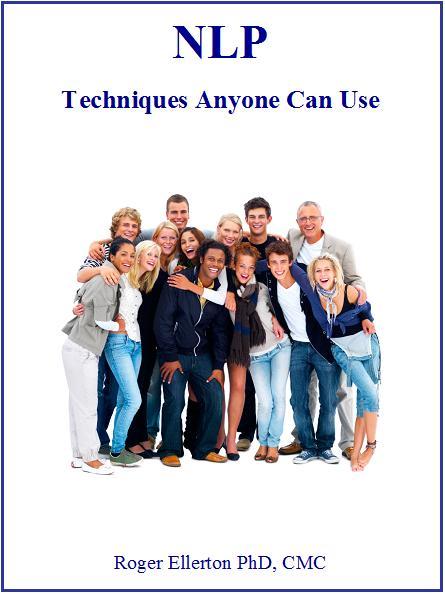What is NLP?
By Roger Ellerton Phd, ISP, CMC, Renewal Technologies Inc.
This article may not be republished without written permission from Roger Ellerton/Renewal Technologies Inc. If you republish this article without permission, you will be in violation of copyright law and sent an invoice. You may share this and other pages with your friends by linking directly to this page from your website or blog.
As a certified NLP trainer, I am often asked ‘What is NLP?’
The term NLP stands for Neuro Linguistic Programming and was coined in the early seventies by John Grinder and Richard Bandler. They began their work by studying: Fritz Perls, psychotherapist and originator of the Gestalt school of therapy, Virginia Satir, well-known family therapist and Milton Erickson, a world-famous hypnotherapist. Their intention was to model outstanding therapists (i.e. identify patterns) in order that others could use these patterns to generate similar results. You may say that NLP is about identifying excellence, and then devising means for others to use those patterns to achieve similar results.
And NLP is more than that.
NLP also draws on earlier work, such as Ivan Pavlov's conditioned reflexes (1904). In NLP this is called anchoring. You could say that NLP takes theoretical results developed by others and makes them available to you and me so that we can improve our lives and well-being.
And NLP is more than that.
NLP had its origins in therapy and is now applied in all areas of human endeavour - education, health, sports, business, and the list goes on. Here are some NLP books for you to consider.
And NLP is much more than that.
Let us look at the terms Neuro Linguistic Programming.
Neuro refers to your brain and your neurology. It is about how you take in information. For example, you can use your eyes to see something. Other ways to experience an event include: hear, kinesthetic (tactile touch or emotional feeling), gustatory (taste) and olfactory (smell).
Linguistic refers to the language -- pictures, sounds, feelings (kinesthetic), tastes, smells and words -- that you use to remember a particular experience (or to forecast a future experience). For example, did you have breakfast this morning? When you remember having breakfast, can you see a picture in your mind, can you hear sounds (maybe a radio was on or someone said something to you), what about tastes and smells, how were you feeling - happy, tired, excited?
For a future experience, do you see yourself being successful? Or failing? The pictures, sounds, feelings, tastes, smells and words that you use to describe future experiences have a bearing on what actually happens! You do create your own reality!
Programming refers to your habits, patterns, programs, strategies, etc. If it is a workday, do you follow a particular pattern, as you get ready for work? Maybe you like to lay in bed an extra 5 minutes after the alarm goes off. Do you shower right away or have breakfast first? If you take time to look at what you do, I am sure that you will see a pattern that you follow in getting ready for work. If for some reason you do not follow that pattern, do you find yourself feeling that something is missing?
You have patterns, habits, strategies, programs for everything you do. Some of these patterns serve you, others do not - resulting in unwanted outcomes. You maybe fully aware of some of your patterns. You may become aware of other patterns only when someone else brings them to your attention. And you may choose to quickly forget about these patterns because you do not want to address that part of your life. And there are still other patterns that you are not aware of at all; yet they continue to influence how you look after yourself, communicate with others, etc. If the patterns serve you - generate positive results in your life - great! If you find that some patterns do not serve you, would it be useful to discover which patterns they are and to change them?
Question: Who put your patterns, habits, strategies, programs in place? You did! So who can change them? You can! First, you must be aware that you run these patterns. For me, this is one of the biggest benefits of NLP - become aware of the patterns, habits, strategies, programs that I have been running unconsciously and then use NLP techniques to change them so that I achieve the outcomes that I desire.
And NLP is MUCH more than that!
In subsequent articles, we will explore NLP in more detail, giving you insights as to how you function, how you communicate with others and how you can change your life, if you choose.
Author: Roger Ellerton is a certified NLP trainer, certified management consultant and the founder and managing partner of Renewal Technologies. The above article is based on his book Live Your Dreams Let Reality Catch Up: NLP and Common Sense for Coaches, Managers and You.
Copyright © 2003, Renewal Technologies Inc. All rights reserved.

